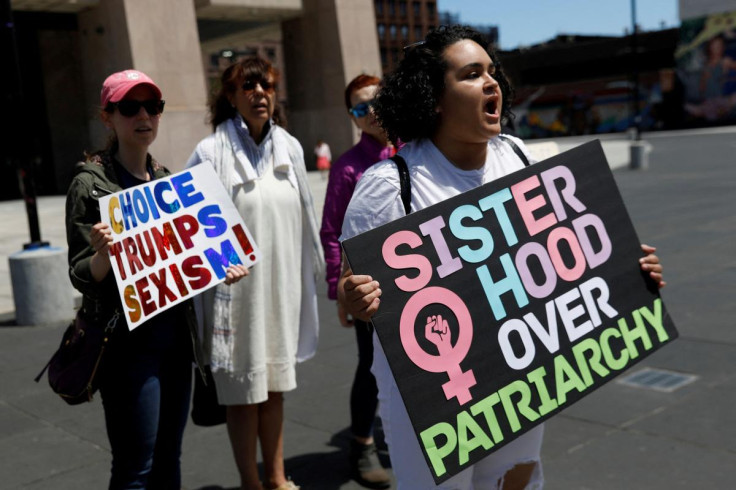GOP Candidate Doubts Rape Leads To Pregnancy Because Intercourse Is Done ‘Quickly’

A female Republican nominee for Congress in Virginia believes that women who are victims of sexual assault are less likely to get pregnant because it doesn’t happen “organically.”
Yesli Vega, the GOP nominee running against Democrat Abigail Spanberger for Congress, was attending an event in Stafford County last month when she was asked whether she had heard rumors that it is harder for women to get pregnant if they are raped.
“Well, maybe because there’s so much going on in the body,” Vega said, according to a leaked audio published by Axios on Monday. “I don’t know. I haven’t, you know, seen any studies. But if I’m processing what you’re saying, it wouldn’t surprise me. Because it’s not something that’s happening organically. You’re forcing it. The individual, the male, is doing it as quickly—it’s not like, you know—and so I can see why there is truth to that. It’s unfortunate.”
Vega’s campaign team did not deny the authenticity of the recording.
The Republican nominee’s comments about rape and pregnancy echo remarks previously made by the late Missouri Rep. Todd Akin in 2012 when he insisted that women are unlikely to get pregnant if they experience “legitimate rape.”
“From what I understand from doctors, that’s really rare,” Akin said at the time. “If it’s a legitimate rape, the female body has ways to try to shut that whole thing down.”
Vega, who won the GOP primary race last week, has been an outspoken critic of Roe v. Wade. She also received endorsement from Sen. Ted Cruz, R-Texas, and Ginni Thomas, wife of Supreme Court Justice Clarence Thomas, who supported the Supreme Court’s decision to overturn Roe v. Wade. Thomas has also called for overturning the constitutional rights for access to contraceptives and LGBTQ+ rights.
It is unclear what steps the Biden administration plan to take following the overturning of abortion rights. However, House Speaker Nancy Pelosi sent a letter to her Democratic colleagues outlining legislation that “protects the health and freedom of American women.”
Among the options outlined were once again passing the Women’s Health Protection Act, which will protect women’s rights to access abortion care across the United States.

Demonstrators protest new restrictions on abortion passed by legislatures in eight states including Alabama and Georgia, in New York, U.S., May 21, 2019. Photo: Reuters / SHANNON STAPLETON




















